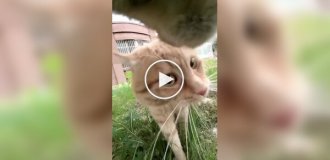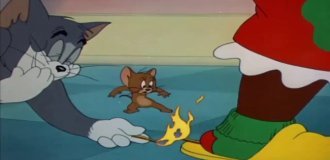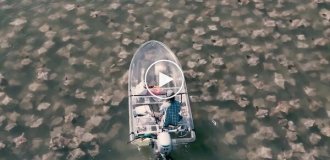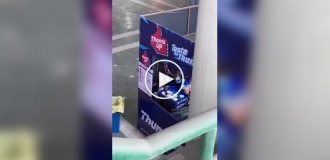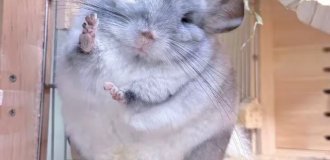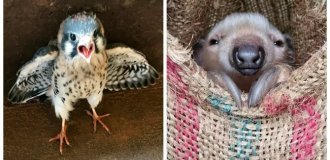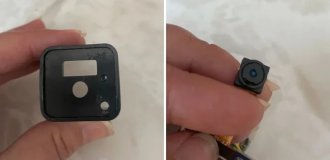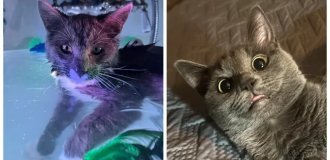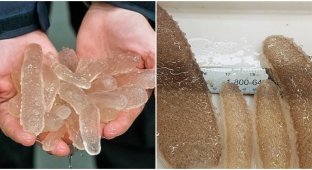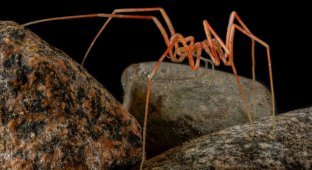Dead water in the ocean. 99% of sea animals die here in minutes (11 photos)
Imagine that you are in a bathyscaphe. Your apparatus slowly rises from the depths of the sea along an underwater volcano. In the flickering light of the spotlights, you see how the sea cliffs gradually come to life. The higher you rise, the more life there is around. 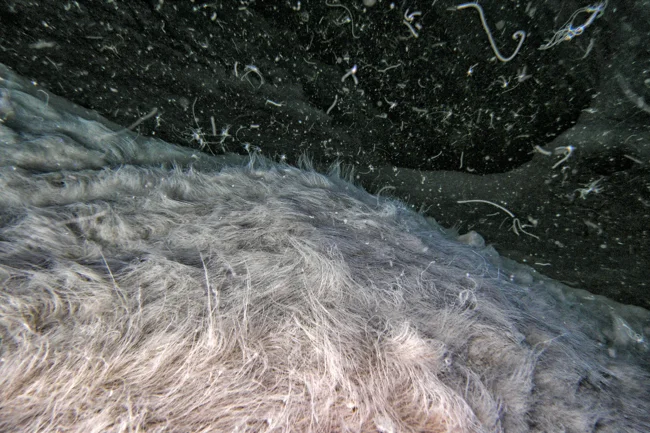
Hello, did you order a bacteria blanket?
Long-legged and creepy sea spiders are replaced by nimble shrimps, here and there sea corals bloom, between them colonies of mollusks and polychaete worms huddle. And then all this diversity is instantly replaced by dead rocks covered with featureless gray fluff. Welcome to the oxygen minimum zone.
The oxygen minimum zone (hereinafter referred to as the OMS) is a layer of water in which the oxygen content is 20-70 times lower than normal. In these areas, oxygen respiration is so unfavorable that 99% of multicellular organisms cannot live there in principle. In the entire World Ocean, only 77 species of fish were found that can live in such conditions. 77 species out of 35,000! 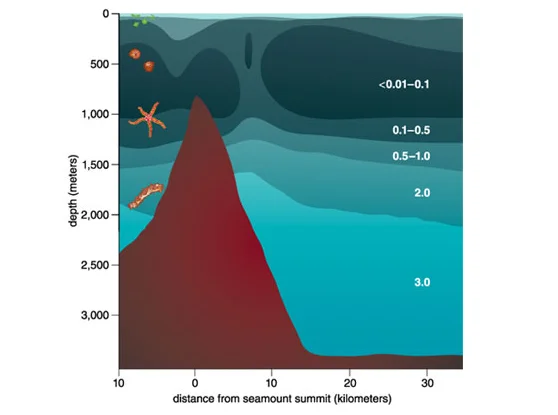
The dark area on the graph is the very same oxygen minimum zone.
Physics is to blame for the appearance of such areas. All the oxygen in the World Ocean is produced in the photic zone, at depths of up to 200 meters. It penetrates into deeper layers due to various mechanisms of mixing water masses, such as currents. If they do not work, then oxygen slowly gets to the depths only through diffusion - the movement of individual molecules. 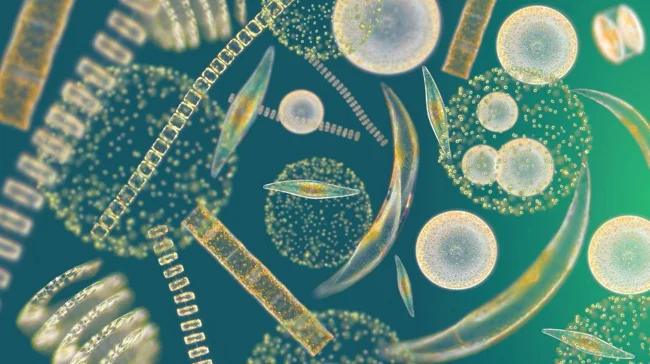
Despite the fact that the title of the green lungs of the planet has been usurped by the jungle, it is oceanic phytoplankton that produces about 90% of the oxygen.
But it is not only oxygen that sinks to the bottom. Under the force of gravity, hundreds of tons of organic matter from the upper layers of the ocean sink into the ZKM. Putrefactive bacteria, stagnant at a level of 500-1000 meters, greedily suck out almost all the oxygen from the water. This is how a layer of water is formed in which the oxygen content is lower than anywhere else. 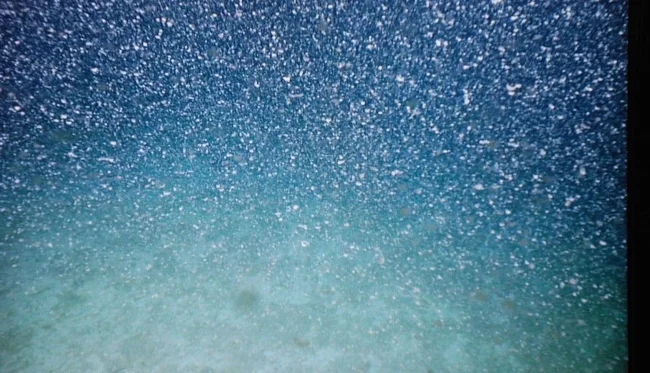
The organic matter falling to the bottom has a very poetic name - ocean snow.
In such conditions, ancient, primitive creatures gain an advantage over more advanced ones. The basis of the meager ecosystem of the ZKM is chemosynthetic bacteria - single-celled bacteria that receive energy by breaking down chemicals. Under normal conditions, they lose dry to those who use oxygen, but here they form huge bacterial mats. A piece of such a mat with an area of one square meter weighs up to 120 grams! 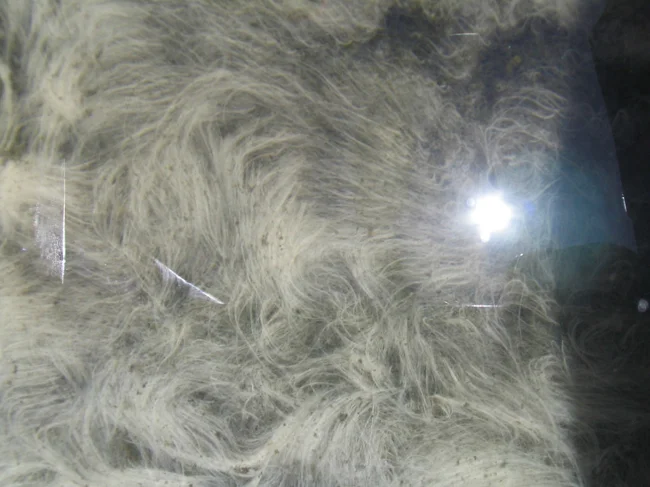
Each thread is millions of microscopic creatures.
And jellyfish hover above the single-celled kingdom. There are surprisingly many jellyfish in the oxygen minimum zones. They find here not only food, but also a safe harbor. Most predators simply cannot get close to them without risking their lives. At the same time, the jellyfish themselves feel great. Due to their primitive structure and low metabolic rate, they almost do not need oxygen. The pitiful crumbs that are present in these waters are more than enough for them. 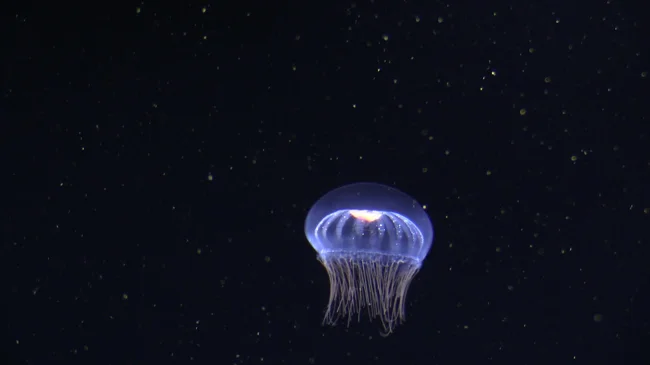
Hydromedusae survive best in the ZKM. Unlike other jellyfish, representatives of this class of animals prefer a solitary and secretive lifestyle.
Jellyfish are accompanied by shrimp-like crustaceans, such as ampeliscus and mysids. They have radically increased the size of their gills, made them thinner and very permeable to oxygen. These arthropods harvest bacterial fields and eat up the organic matter that has fallen from above. 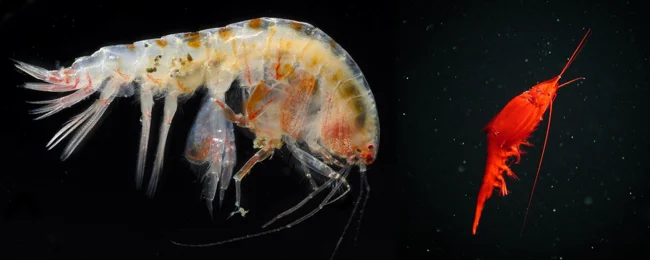
On the right is an ampelisk, on the left is a giant red mysis. Here they are, herbivores of bacterial prairies!
Here live the hellish vampire squids. I agree, they really live in a hellish place, but despite the name, they do not feed on blood, and have nothing to do with squids. This is a unique group of cephalopods that specializes in feeding on detritus (dead organic matter) in conditions of total oxygen starvation. The secret of their survival is hemocyanin. Vampire squids use it instead of the hemoglobin we are used to. In conditions of low oxygen concentration, copper-based pigments work more effectively. 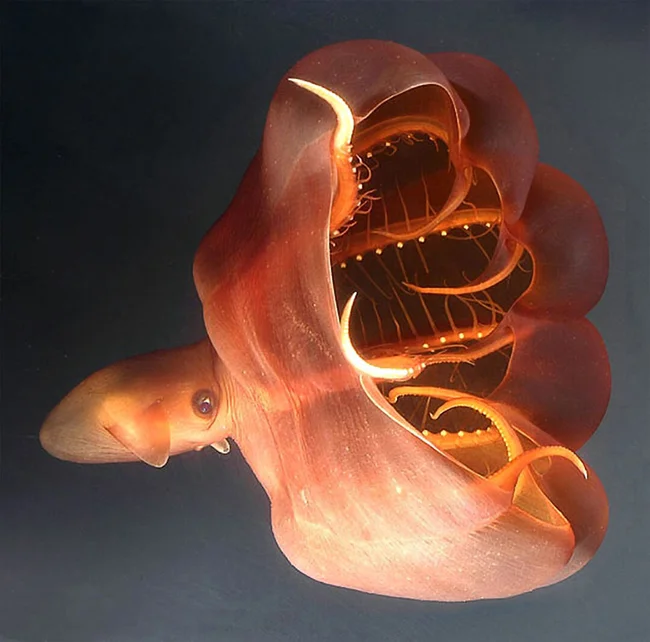
Okay, these creatures do look creepy.
The Humboldt squid, almost the only large predators in the ZKM, use the same life hack. They come here to snack on crustaceans. But they can't live here for too long: the strain on their bodies is too great. 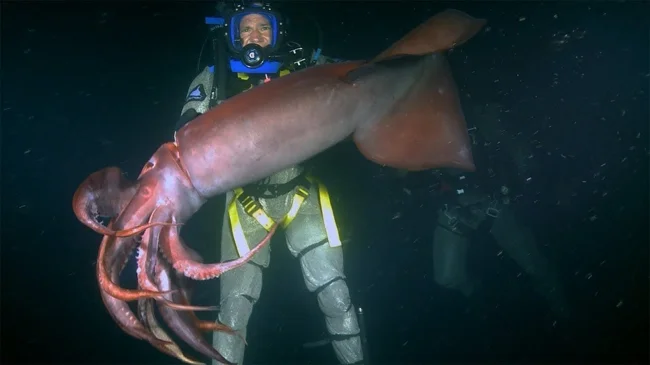
Humboldt squid are one of the few invertebrates capable of coordinated joint hunting.
But the ragfish, the largest fish in the ZKM, come here to feed on jellyfish and the squid themselves. Fast and active, they are resistant to a lack of oxygen. But, like the Humboldt squid, they are not able to live here on a permanent basis. 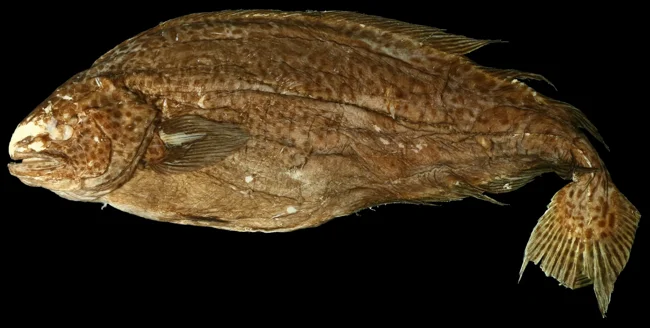
Really a wimp, pull yourself together already!
Both permanent residents and temporary visitors are fed by local top predators - elephant seals. Since elephant seals breathe atmospheric air, they don't care about the oxygen concentration in the water. Their ability to dive to depths of up to 800 meters allows them to rule in oxygen-free waters and devour those who feel safe here. 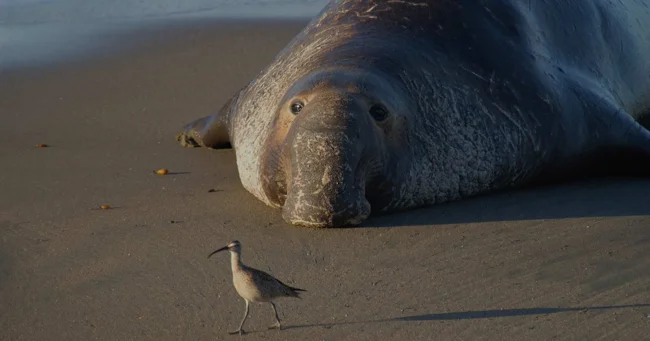
In the water - a nightmare monster. On land - a funny pie.
Despite the fact that by the standards of the World Ocean, the ZKM is a dead desert, it plays a major role in the cycle of substances. The oxygen minimum zone is an ideal area for the utilization of excess mineral substances. Bacterial plantations endlessly catch them from ocean waters, break them down, and die, forming mineral-saturated silt. In particular, they help the ocean get rid of excess mineral fertilizers brought by rivers from fields cultivated by humans.
